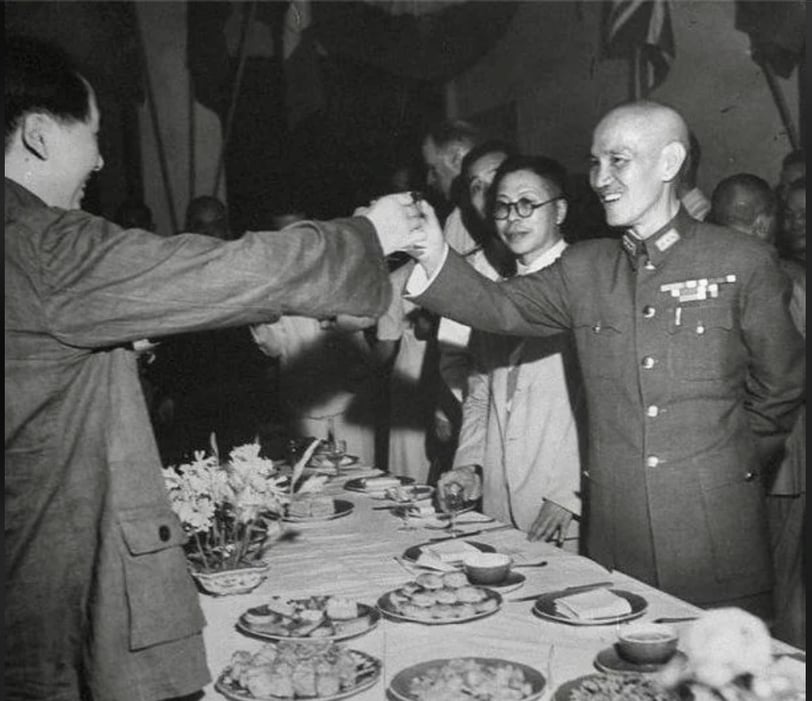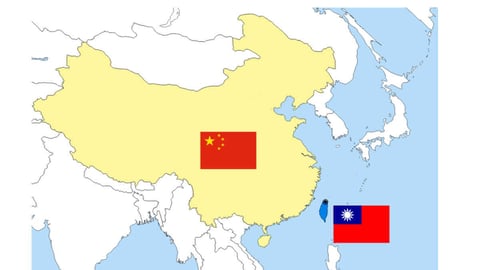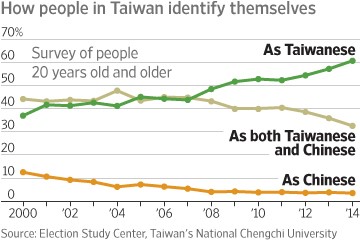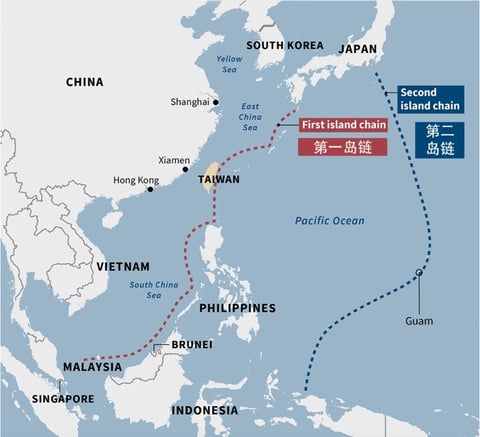THE CHINA vs TAIWAN CONFLICT
CURRENT AFFAIRS
Chandu B
2/7/20253 min read


The China-Taiwan conflict is one of the most complex and longstanding geopolitical disputes in modern history. Rooted in history, fueled by nationalism and strategic global interests, the conflict remains a potential flashpoint in international relations. As tensions rise with increasing military activity, understanding the background, key issues, and potential outcomes of the China-Taiwan conflict is essential.
THE CHINESE DIVIDE
The origins of the China-Taiwan conflict date back to the Chinese Civil War (1927–1949). The war saw the nationalist Kuomintang (KMT) forces, led by Chiang Kai-shek, battling the Communist Party of China (CPC), led by Mao Zedong. After the Communist victory in 1949, the KMT retreated to an island off China’s coast called Taiwan and established the Republic of China (ROC), while the People’s Republic of China (PRC) was declared on the mainland which is the China we know today.
Initially, both governments claimed to be the legitimate rulers of China. However, the international community gradually shifted recognition to the PRC, with the United Nations expelling the ROC in 1971 in favor of the PRC. Despite this, Taiwan has continued to function as a self-governing democracy with its own government, military, and economy.
Last meeting of Mao Zedong and Chiang Kai Shek in August 1945 after Japan surrendered in WWII


A Map of China and Taiwan with Taiwan highlighted in Blue.
CHINA's STANCE
China considers Taiwan a breakaway province that must be reunified with the mainland, by force if necessary. Beijing’s official policy is based on the "One China Principle," which asserts that there is only one China and Taiwan is part of it. This is reinforced by the 2005 Anti-Secession Law, which allows China to use military force if Taiwan formally declares independence. Chinese President Xi Jinping has intensified efforts to pressure Taiwan through military and economic pressure along with diplomatic isolation. China frequently conducts military drills around Taiwan and has increased airspace incursions into Taiwan’s Air Defense Identification Zone, signaling its willingness to escalate tensions if necessary.
TAIWAN's PERSPECTIVE
Taiwan, under various ruling parties and presidents through various decades has emphasized its sovereignty and democratic values. Most Taiwanese citizens identify as Taiwanese rather than Chinese, and support for formal independence has grown, despite the risks of Chinese retaliation. Taiwan has also strengthened its defense capabilities and deepened unofficial ties with countries like the United States, Japan, and Australia. However, Taiwan remains diplomatically isolated, with only a handful of nations recognizing it as a sovereign state.
The United States plays a crucial role in the China-Taiwan conflict. While officially recognizing the PRC under the "One China Policy," the U.S. maintains a strong relationship with Taiwan through the Taiwan Relations Act (1979). This act commits the U.S. to help Taiwan defend itself, though it stops short of explicitly promising military intervention. Recent years have seen increased U.S. military aid to Taiwan, high-profile visits by high-ranking American officials like Nancy Pelosi, and joint military exercises in the Indo-Pacific region thus increasing tensions with China.


Taiwanese Identity among its citizens (Source - WSJ)
Significance of Taiwan and Potential Future Scenarios
Taiwan holds immense economic and strategic importance. It is a global leader in semiconductor manufacturing, with Taiwan Semiconductor Manufacturing Company (TSMC) producing over 50% of the world’s advanced chips. Any disruption in Taiwan would have severe consequences for global technology and supply chains. Geopolitically, Taiwan is a key part of the "First Island Chain," a line of U.S. allied territories that limits China’s naval expansion into the Pacific. Control over Taiwan would significantly enhance China’s strategic influence in the region and weaken U.S. power in Asia.


Taiwanese Identity among its citizens (Source - WSJ)
Several scenarios could unfold in the future because of the China-Taiwan conflict. Taiwan maintains the status quo and continues to function independently without formally declaring independence, and China maintains pressure but avoids escalation. China could initiate a limited military conflict by increasing its military activity around Taiwan leading to small skirmishes. The worst-case scenario would be China attempting to mount a military campaign to conquer Taiwan which would trigger a large-scale war by drawing in Taiwan’s powerful western allies.
